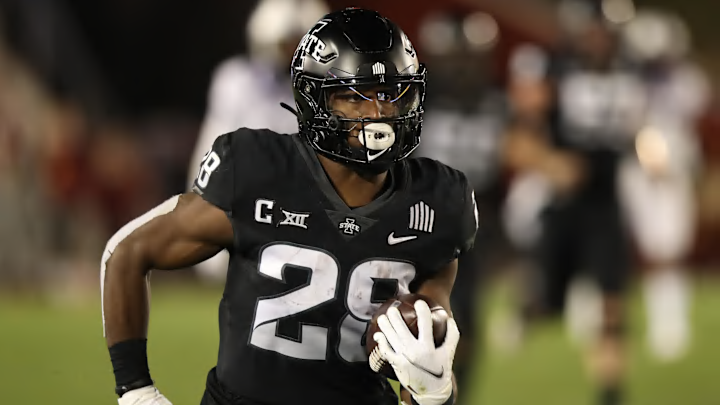The NY Jets made the decision to trade-up two spots in the second round of the 2022 NFL Draft to ensure they selected a man who they believed was the clear-cut top running back in his class, Iowa State's Breece Hall.
Hall was the near-consensus RB1 in this year's draft class with only Michigan State's Kenneth Walker III challenging him for that title. There were rumblings that he'd go as early as the first round, but he ultimately slid to the top of the second.
That slide wasn't going to last long, however, and with the Jets eyeing him as a top target, they decided to jump ahead of the Houston Texans to solidify their chance to grab him.
The Texans reportedly had planned to select Hall with the 37th overall pick, but the Jets traded up with the New York Giants, giving up a fifth-round pick (146) in the process, and made sure that they got their guy.
On the surface, this seems like a savvy move. But it's a decision that's come under fire in recent days.
For starters, we're obviously going to be talking about "the process" here. We don't know how Hall is going to fare in the NFL so it's impossible to truly gauge if the trade/pick was worth it right now. We can analyze the process and the value though.
The Jets essentially used two assets to acquire Hall: the 38th and 146th picks in the draft. Using Jimmy Johnson's standard trade value chart, those picks roughly equate to the value of the 33rd or 34th overall pick at the top of Round 2.
It was a pretty fair trade from a value perspective. The Jets gave up slightly more as is often the case in trade-ups, and in doing so, they drafted a player who they otherwise would not have been able to land had they not executed the trade-up.
That seems like a good use of assets to me. If you're targeting a player who ranks top-18 on your draft board and you give up the value of a second-round pick to land him, it's hard to argue with that process.
Yet, many have.
